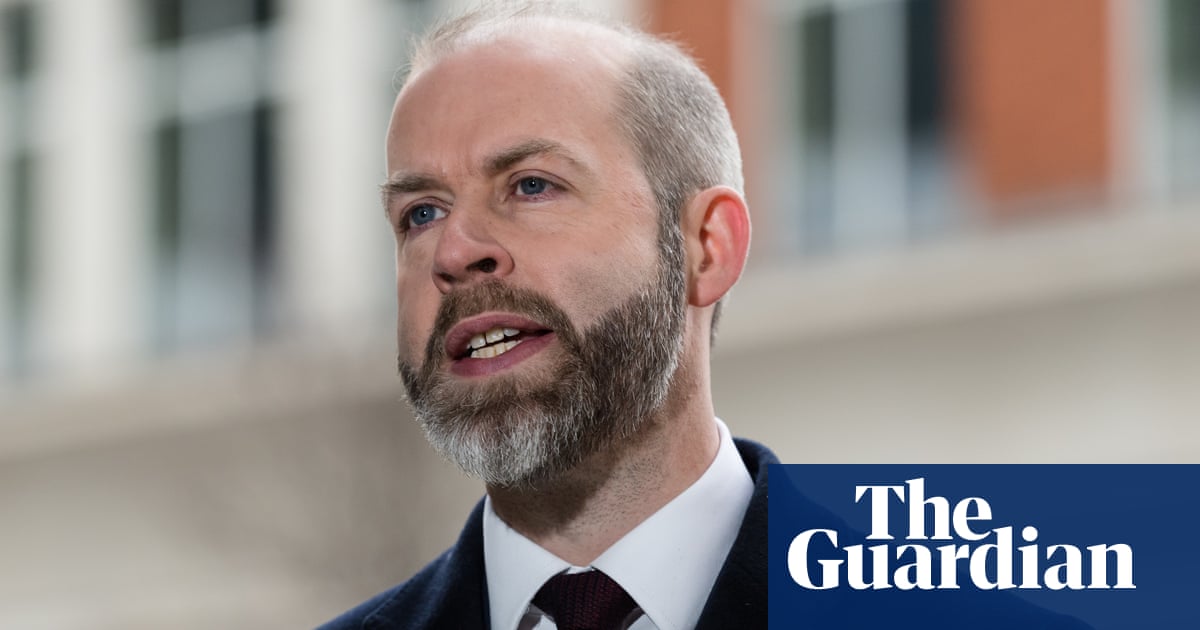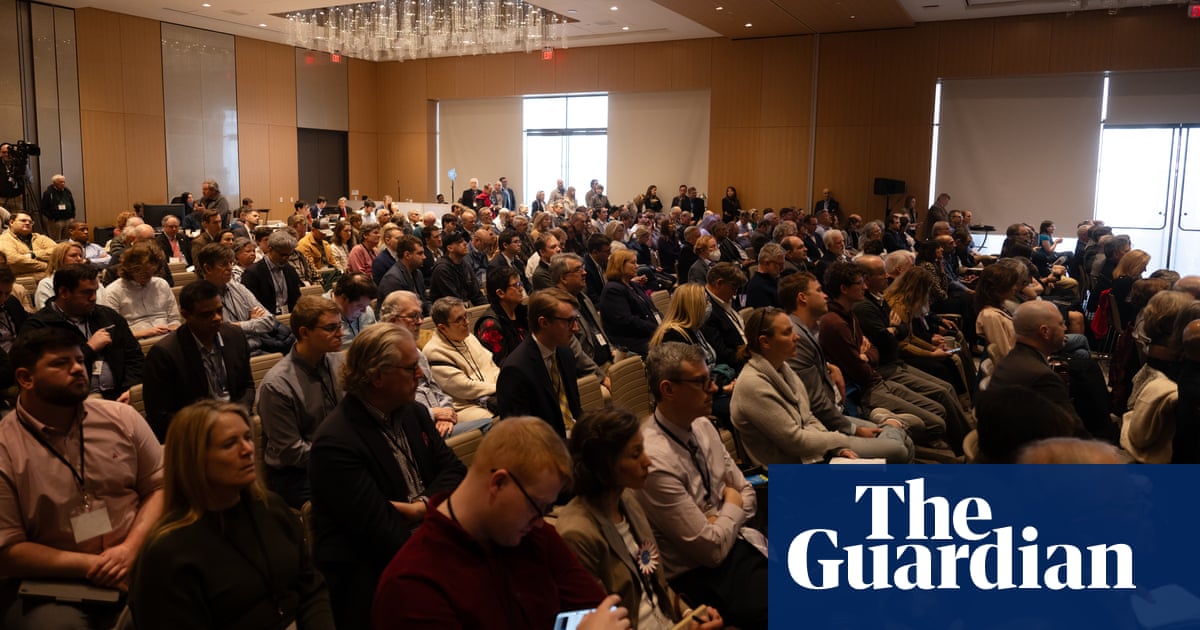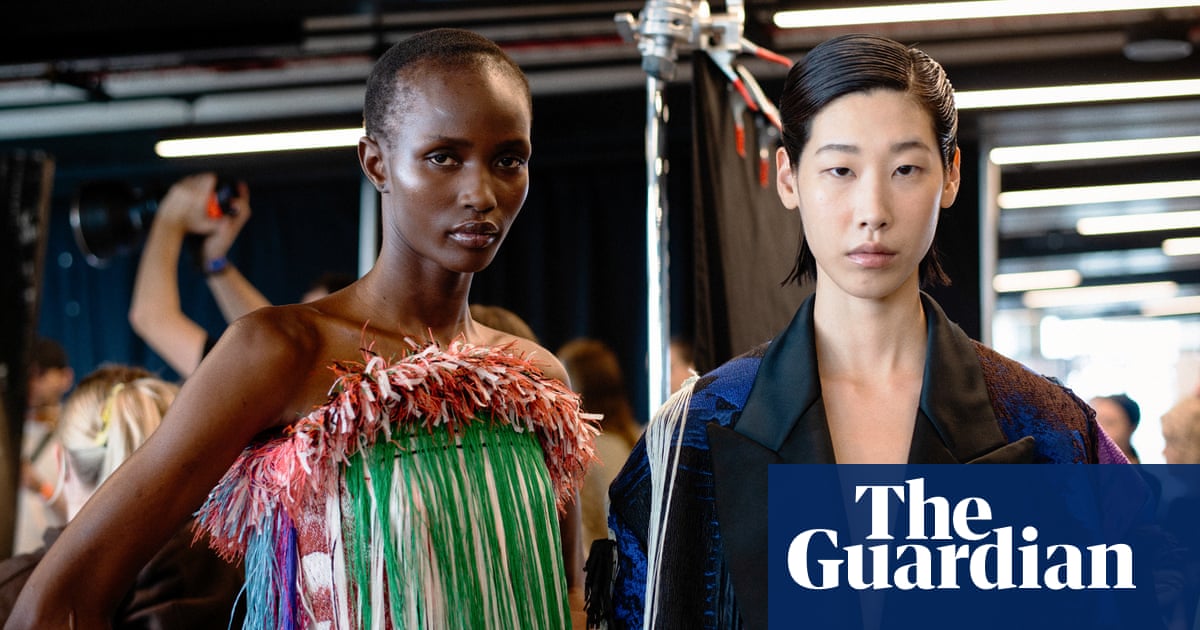“The noise never stops,” says Karla Hart, her voice competing with the hum of approaching helicopters. “I can feel them before I see them.” She looks at her phone to check a website that monitors air traffic and identifies operators. Hart wants to know whether the pilots are adhering to legal flight routes.
A few minutes later, five helicopters, flying in formation, crisscross the grey October skies above Hart’s home in Juneau, Alaska’s capital. “I get groups of two to five helicopters flying over my house every 20 minutes. On any given day, that adds up to 50 to 75 flights. It’s impossible to enjoy my garden or concentrate on work.”
For Hart and other Juneau residents, the noise from helicopters shuttling cruise tourists to remote glaciers is one of the many reminders of how their lives are being upended by a city that has embraced industrial tourism.

-
Cruise passengers disembark to explore Juneau, Alaska, in September. Vessels like the Ovation of the Seas can carry more than 4,000 passengers. Photograph: Ed Ou/The Guardian
Juneau is one of the US’s most remote towns, accessible only by air or sea. The waters surrounding it are the traditional fishing grounds of Alaska’s Indigenous communities. It is wedged between towering mountains and the Gastineau Channel, a dramatic vista for more than 1.5 million cruise passengers who visit annually. Juneau was historically reliant on timber and gold, but as those industries have declined, the city now depends on tourism and government sector jobs.
Cruise season runs from April to October, with as many as five vessels docking daily in the heart of the historic district. Ships such as the Ovation of the Seas and Norwegian Bliss, with passenger capacities exceeding 4,000 plus crew, arrive in the morning and depart by nightfall, only to be replaced by new arrivals. This cycle continues until the treacherous Taku Winds, with gusts reaching more than 100mph, signal the end of the season.

-
Juneau activist Karla Hart in her home office. Photograph: Ed Ou/The Guardian
The rhythm of the cruise season dictates daily life for Juneau’s 32,000 residents. Local people monitor the schedule provided by the Alaska Cruise Ship Association and avoid the centre during peak cruise hours. Traditional seasons have been replaced by two distinct periods: cruise and non-cruise.
Under an agreement with the City of Juneau, up to 16,000 cruise passengers disembark daily from Sunday to Friday, with a cap of 12,000 on Saturdays. Annually, cruise passengers outnumber the local population by 50 to one.
Hart eagerly anticipates the end of the cruise season. It will offer a break from traffic congestion on the town’s single-lane road, and the relentless noise from aircraft ferrying tourists seeking a brief taste of Alaska wilderness. Souvenir shops selling little that’s authentically Alaskan, alongside jewellery stores offering Tasmanite and pendants for couples celebrating milestones, will shutter. Themed pubs, aspiring to evoke a bygone era, will close for the season.
Hart, a former tourism business owner turned activist, is at the centre of a political fight that has divided the community. She spearheaded Proposition 2, a ballot initiative aimed at banning cruise ships on Saturdays and 4 July. In October, it was defeated by a margin of about 60/40, with approximately 10,000 people voting, more than in the mayoral election, which took place at the same time. “We’ve become an amusement park,” Hart says. “The soul of Juneau is being sold off piece by piece.”

-
Ships must negotiate the Gastineau Channel before docking in Juneau’s historic district. Photograph: BriBar/Getty Images

-
A humpback whale breaches in nearby Stephens Passage, where tourists take whale-watching and fishing trips. Photograph: Paul Souders/Getty Images
Residents cherish their access to Alaska’s vast wilderness – its forests, mountains, waters and glaciers. They value the security and sense of community that defines small-town life in America. But Juneau’s identity has fundamentally changed with the rise of an industry that monetises experiences local people take for granted. Hiking, whale watching, fishing and kayaking – everyday activities for Juneauites – are packaged and sold at premium prices aboard the cruise ships.
“It is a once-in-a-lifetime trip,” says Pat Farrell, who is in Juneau with his wife, Freda. The semi-retired couple from Dublin are passengers on the Celebrity Solstice and are on a typical seven-night Alaska itinerary. After a day of excursions, they return to the ship, where meals and drinks are already paid for.
They take a few minutes to break away from the stream of passengers descending the terminal and crossing the ship’s gangway. Nearly 320 metres long and 19 decks high, the Celebrity Solstice is fully lit, shimmering in the late Alaskan summer evening. It’s hard to argue that these giant ships aren’t an engineering marvel.

-
Many passengers see their experience as a ‘once-in-a-lifetime trip’, but this is also seen as ‘last-chance tourism’ because of climate breakdown. Photograph: Ed Ou/The Guardian
“I wanted to see the glaciers before they melt,” says Freda. Pat adds: “We’ve seen things we never would have, like glaciers and whales. It’s just beautiful.” Though conscious of the environmental impact of their cruise, they wanted to see these places before it was too late.
The Farrells have noticed banners and storefront display stickers promoting cruise ship tourism but they are also aware of community divisions. “I see that some of these towns depend on the cruise ships,” Freda says. The ease of travel made the cruise an attractive option though. “Everything is well-organised, and the service is top-notch. It’s hard to resist the temptation. It’s the adventure of going to Alaska.” They tried to support local businesses. “We made it a point to shop at a store that says it’s Alaskan-owned, but I do wonder how the locals feel with so many of us here.”

-
A cruise ship docked in Juneau, Alaska, 5 September 2024. The city faces a divide between those who profit from tourism and those who feel their way of life is being disrupted. Photograph: Ed Ou/The Guardian




-
Clockwise from top left: cruise passengers explore Juneau; souvenir shops and jewellery stores are popular with tourists, but some people say they offer little of authenticity. Tourists are loaded on to buses after a whale-watching tour. Ships’ crew, many from the Philippines, take advantage of the opportunity to make a trip ashore. Diamond stores catering to cruise passengers have become a fixture in central Juneau. Photographs: Ed Ou/The Guardian
The cruise industry is one of the fastest-growing tourism sectors, with more than 30 million people choosing cruises each year, according to the latest report from the Cruise Lines International Association. The industry promotes frontier tourism – visiting remote and “exotic” locations – with ships going into regions such as the Arctic, South Pacific and Galápagos Islands. Prof Jackie Dawson of the University of Ottawa termed the idea of seeing wildlife and habitat before they disappear as “last-chance tourism”. Others have labelled it extinction tourism.
Environmentalists are sounding the alarm about the impact of cruise ships on fragile ecosystems. Arved Fuchs, a German adventurer and the first person to reach both the north and south poles on foot in a year, warned five years ago of the problem: “The number of cruise ships is rising, that’s the crux. And the bigger the ship, the more problematic this is.”

-
Cruise ships travel along the Gastineau Channel as Juneau’s pet owners walk their dogs at Savikko Park. Photograph: Ed Ou/The Guardian
At a gathering at the Gold Town Theater, where activists and concerned local people are meeting to discuss the daily impact of cruising on Juneau, Stacy Eldemar, a member of the Tlingit Indigenous community, offers a particularly poignant perspective: “I don’t like the uncontrolled growth, the impact on the ecosystem that I’m seeing. [The ships] killed off the herring run. We used to gather herring. Our sacred spaces are disappearing. It is so important that we have these places where silence speaks.”
Protect Juneau’s Future, a coalition of business owners and tour operators, opposed Proposition 2. It argues that limiting cruise ships will severely affect businesses, many of which are still recovering from the financial fallouts of the Covid pandemic.
The coalition is heavily funded by cruise ship companies, primarily headquartered in Miami. The Alaska Public Offices Commission has recorded donations from Carnival Corporation, Norwegian Cruise Line Holdings and the Royal Caribbean Group of $75,000 each to Protect Juneau’s Future. Disney Worldwide services has contributed $30,000. In total, the Commission reports that Protect Juneau’s Future has generated $495,988 in direct cash donations from cruise lines, businesses with cruise ship interests, and a few individual supporters. It has employed two public relations companies to support its work.
By contrast, supporters of the ballot have raised about $500.
Portland Sarantopoulos, campaign manager for Protect Juneau’s Future, told Juneau Empire in September: “Protect Juneau’s Future is a local organisation led by residents from diverse backgrounds. Our 22 co-chairs and five executive committee members all live in Juneau. In addition to monetary donations from the cruise lines, we are proud of the many small dollar donations made by residents concerned about the negative impacts of Proposition 2.”

-
Karla Hart, seated in front, at a town hall discussion on cruise ship tourism in Juneau in September. Proposition 2, which she backed, was defeated in a ballot a month later. Photograph: Ed Ou/The Guardian
When asked about Proposition 2, the Cruise Lines International Association, the industry’s trade group, responded: “We believe ongoing, direct dialogue with local communities is the best way to collaboratively self-regulate, ensuring great experiences for both residents and visitors while providing a stable market for the many local businesses that depend on the cruise industry.”
For business owner Holly Johnson of Wings Airways, the stakes are high. Her company operates five floatplanes that take tourists to see glaciers. She employs 78 people, 18 full-time, and helped to negotiate the agreement to limit cruise passenger numbers.
Johnson argues that limiting cruise ships beyond the existing cap would have a real impact on businesses and the community. “Everybody is somehow touched by tourism because that’s the fabric of community, right?” she says. “There’s no bubble where the tourism people live and the other people live, and they go to different grocery stores, and their kids go to different schools, and they go to different hospitals.”
She emphasises the ripple effect tourism has on secondary businesses – electricians, food producers, mechanics, fuel stations, for example – and how it provides jobs for young people, who might have few prospects otherwise.

-
Alaska’s wilderness, including the Mendenhall glacier, pictured, is what attracts many visitors but overtourism also puts it at risk. Photograph: Patrick J Endres/Getty Images
But Eldemar disagrees. “It’s ironic that the very thing these tourists are seeking is being destroyed by the industry that’s bringing them here.” Finding a balance between economic necessity and preserving Juneau’s way of life may be the town’s most significant battle yet.
-
This story was produced in partnership with the Pulitzer Center

 2 months ago
56
2 months ago
56













































